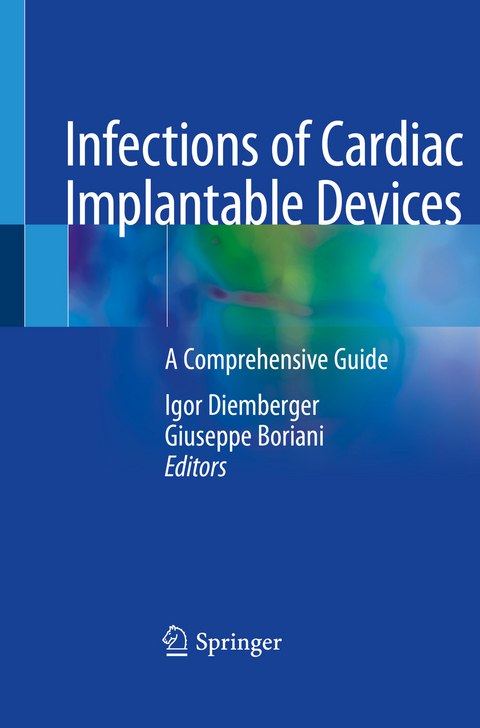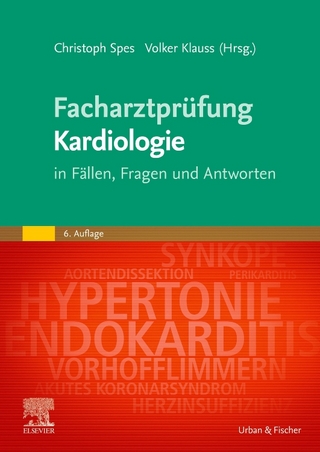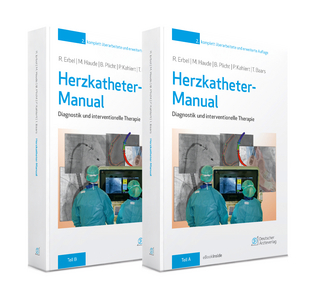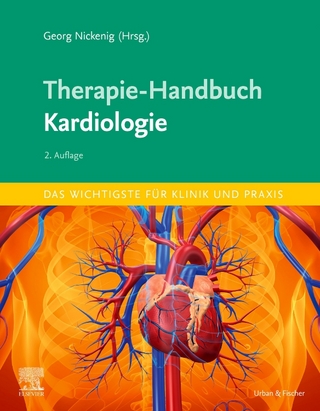
Infections of Cardiac Implantable Devices
Springer International Publishing (Verlag)
978-3-030-46257-4 (ISBN)
lt;b>Igor Diemberger is Assistant Professor of Cardiology and Consultant Cardiologist of the Electrophysiology Unit at the Institute of Cardiology at the University Hospital S.Orsola-Malpighi of Bologna. He is fellow of the European Society of Cardiology (ESC) and the Italian Society on Arrhythmia and Cardiac Pacing (AIAC); he is also a member of the Young Council of the Italian Society on Arrhythmia and Cardiac Pacing (AIAC), the European Heart Rhythm Association (EHRA) and among the experts appointed by the Italian Ministry of Health at the European Medicines Agency (EMEA), London. His broad research Interests range from the management and prevention of infections and the failure of cardiac implantable devices - with particular focus on lead extraction - to the evaluation of proarrhythmic risk of non-antiarrhythmic drugs and the pharmacologic and non-pharmacologic treatment of atrial fibrillation. Furthermore his expertise includes cardiac resynchronization therapy for heart failure patients, treatment of ventricular arrhythmias and prevention of sudden cardiac death, as well as non-invasive evaluation of heart failure patients. His investigations also address pharmacoeconomic issues related to cardiac pacing/defibrillation and atrial fibrillation systems. He has contributed to several multi-center trials and is the author of more than 100 papers and several book chapters.
Giuseppe Boriani is Full Professor of Cardiology at the University of Modena and Reggio Emilia, Chief of the Cardiology Department of Modena University Hospital. He is Fellow of the European Society of Cardiology (FESC) and of the European Heart Rhythm Association (FEHRA). He is former member of the Board of the European Heart Rhythm Association and former Chair of the Health Economics Committee of the European Heart Rhythm Association and Past-President 2016-2018 of the Italian Society of Cardiac Pacing and Arrhythmology (AIAC).
His scientific activity was mainly focused on arrhythmias, clinical electrophysiology, heart failure, cardiomyopathies - including neuromuscular diseases - clinical cardiology, pharmacoeconomics, clinical pharmacology of antiarrhythmic agents and antithrombotics. He is author or co-author of several books and 615 papers in peer-reviewed journals.
1. Infection of Cardiac Implantable Electrical Devices: An Emerging Epidemiological Issue.- 2. Microbiological Background: Biofilm, Culturing and Antibiotics.- 3. The Risk Factors for Cardiac Device Infections: Patient, Physician, Device and Procedure.- 4. Cardiac Device Infections: A Lesson from the Registries.- 5. Building up the Diagnosis of Cardiac Device Infections: The Role of Iimaging.- 6. From Diagnosis of Cardiac Device Infection to Complete Extraction of the System.- 7. Re-implantation Strategy After Lead Extraction for Cardiac Device Infection.- 8. Follow-up and Prognosis After System Removal for Cardiac Device Infection.- 9. Management of Infection of Cardiac Implantable Devices in a Hub-and-spoke Perspective.- 10. Prevention of Cardiac Device Infection: New Implantable Devices.- 11. Prevention of Cardiac Device Infection: Procedural Aspects, Drugs and Preventive Tools.- 12. Prevention of Cardiac Device Infection: Indications, Device Programming, Patient Follow-up.
| Erscheinungsdatum | 01.07.2021 |
|---|---|
| Zusatzinfo | VI, 229 p. 87 illus., 61 illus. in color. |
| Verlagsort | Cham |
| Sprache | englisch |
| Maße | 155 x 235 mm |
| Gewicht | 367 g |
| Themenwelt | Medizinische Fachgebiete ► Innere Medizin ► Kardiologie / Angiologie |
| Schlagworte | cardiac device extraction • cardiography • CIED • Defribillator • Endocarditis • Heart Failure • Infectious Diseases • leadless cardiac devices • pacemaker • Sepsis |
| ISBN-10 | 3-030-46257-9 / 3030462579 |
| ISBN-13 | 978-3-030-46257-4 / 9783030462574 |
| Zustand | Neuware |
| Haben Sie eine Frage zum Produkt? |
aus dem Bereich


